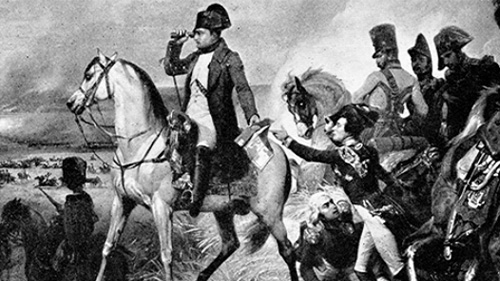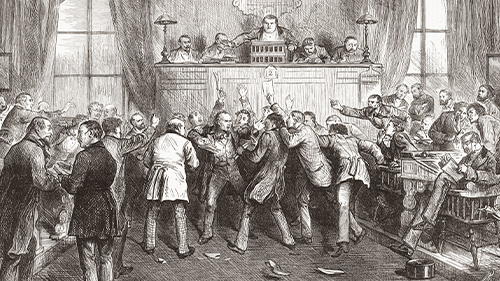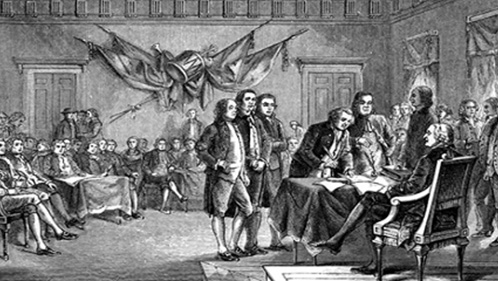Organizing Your AP® European History Course
Do you need some ideas and/or extra support to organize your AP® European History course? Join Lou Gallo as he shares ideas on organizing your course...
AP & Honors Mathematics
Explore Wiley titles to support both AP and Honors mathematics instruction.
Literacy Skills & Intensive Reading
Connections: Reading – Grades 6–12
Empower student success with a proven intensive reading program that develops strong reading skills in striving readers.
Drama, Speech & Debate
Basic Drama Projects 10th Edition
Build students’ confidence and competence with comprehensive, project-based theatre instruction.
Literature
Connections: Literature
Support learners as they study dynamic, relevant texts and bring the richness of diverse voices to students through literature.
Literature & Thought
Develop critical thinking, reading, and writing across literacy themes, genres, historical eras, and current events.
Language Arts
Vocabu-Lit® – Grades 6–12
Help students build word power using high-quality contemporary and classic literature, nonfiction, essays, and more.
Connections: Writing & Language
Help students develop grammar, usage, mechanics, vocabulary, spelling, and writing and editing skills.
Reading/English Language Arts
Measuring Up to the English Language Arts Standards
Incorporate standards-driven teaching strategies to complement your ELA curriculum.
English Language Learners
Measuring Up for English Language Learners
Incorporate research-based best practices for ELLs with an approach that includes a focus on language acquisition strategies.
Mathematics
Measuring Up to the Mathematics Standards
Incorporate standards-driven teaching strategies to complement your mathematics curriculum.
Foundations
Measuring Up Foundations
Help students master foundational math skills that are critical for students to find academic success.
Science
Measuring Up to the Next Generation Science Standards
Give students comprehensive NGSS coverage while targeting instruction and providing rigorous standards practice.
Assessment
Measuring Up Live
Deliver innovative assessment and practice technology designed to offer data-driven instructional support.
For a better website experience, please confirm you are in:

Between 1607 and 1754, the British presence in North America vastly increased and there were more than 30 British colonies. Among those colonies were the “13 colonies” that eventually became the United States.
The attached lesson plan allows students to practice their historical thinking skills in multiple ways. Students must research characteristics of the different colonial regions of British North American and categorize them using a SPRITE chart using the reasoning process of comparison. They will also read and source primary sources in the form of a DBQ and create arguments using evidence for support using the reasoning process of causation. The goal is for students to leave this lesson with a better understanding of the characteristics of colonial America as well as a better grasp of the historical thinking skills and reasoning processes needed for success on the AP® Exam.
Enjoy!
Lou Gallo is a College Board AP® European History and United States History consultant who leads summer institutes nationally. He currently teaches both courses at West High School in Knoxville, Tennessee, and also teaches AP® European History online at Dwight Global, based in New York City. He has also served in a leadership role at the AP® European History reading since 2000 and is a Senior Reviewer of the AP® European History coursebook by AMSCO®.
.jpg)
Do you need some ideas and/or extra support to organize your AP® European History course? Join Lou Gallo as he shares ideas on organizing your course...

Do you need ideas or extra support helping students review for the AP® United States History Exam? Join me as I share my content review resources and...

Do you need some ideas and/or extra support to organize your AP® United States History course? Join Lou Gallo as he shares ideas on how to organize...

This lesson module can be used by regular or AP® World, U.S., or European History teachers to develop an understanding of how sport has been used as...

Do you need ideas or extra support helping students review for the AP® European History Exam? Join me as I share my content review resources and...

The Supreme Court of the United States is often seen as the most distant and befuddling branch for my students. Whether it is misunderstanding their...

Review season is upon us. With preparations for upcoming AP exams, finals, and other year-end assessments principals in cognitive science can help...

As you know in our study of the AP ® U.S. Government, there are nine Foundational Documents. But one of these towers among the rest: the U.S....

Over years of experience teaching an AP® course (in my case, AP® World History), I’ve been able to compile a list of “must do” tips and suggestions...

Even though it feels like the whirlwind of the school year just ended, it’s never too early to start thinking through what you want your course to...

The start of a new year always a wonderful opportunity to introduce students to effective, research-backed methods for studying more effectively....

One of the most important goals of civics education is to get students to understand the imperfections of the constitutional system of the United...
